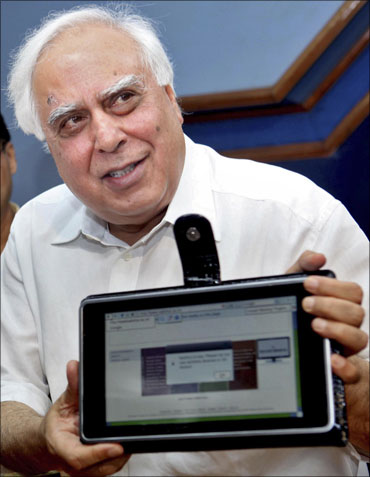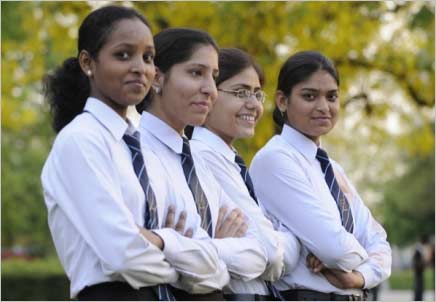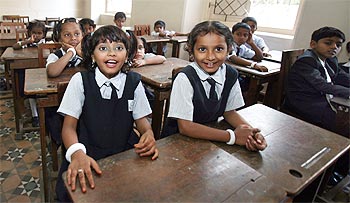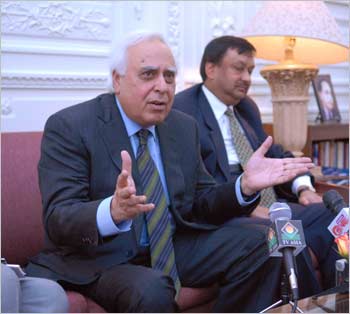
When it comes to taking any decisions on the hallowed portals of engineering and management education, even a visionary and an overzealous human resource development minister like Kapil Sibal has to contend with the slow and time-consuming process of decision-making.
The need for de-stressing the transition from secondary schools to graduate programmes in engineering is something everyone agrees on. But the way to reduce multiplicity of exams has eluded the Council of Indian Institutes of Technology (IITs).
The stress for students starts much before it is time to take the IIT-Joint Entrance Examination (JEE) and such other exams. Here are a couple of examples of how deep-rooted the 'stress' is.
Every weekend I see 10-year-old Sridhar playing football in our neighbourhood park. This is what a Class 4 urban Indian child is expected to do. I have never tried asking Sridhar what career he is preparing for.
Not because he is too young to answer that question but because I learnt that in Class 4, his grandfather is already teaching him math for Class 6 and his mother, an MNC executive, teaches him Sanskrit -- a clear give away that they want the child to do well in high-scoring subjects in school and join the ranks of other family members to be an engineer or a doctor.
. . .

Take another example. My 17-year-old nephew, Shishu, has spent the last two years coping with his final years at school and a coaching centre for multiple admission tests so that he could become an engineer, just like his dad.
Both Sridhar and Shishu seemingly enjoy their days in school but not many psychologists and educationists would agree with that.
Anecdotally, we know that the student stress levels climb up in the final years of school and peak as they go through multiple admission tests.
Some test the ability to apply principles of science while others are purely objective type but with negative marking for incorrect answers. Some use computers while others use machine readable answer sheets with correct answers to be blackened with an HB pencil.
The stress levels across the country just refuse to die down even with multiple counselling sessions.
. . .

These are just a few examples of how first the parents and then the education administrators add unnecessary 'stress' to young Indians aspiring to pursue professional programmes.
Let us not forget that the biggest stress for a general category student is that only 45 per cent of the total seats are available to him/her, the rest being cornered by the reserved categories.
Even though academicians and policymakers agree on the urgent need to 'de-stress' young Indians, no consensus could still be reached on the recommendations of the IIT Kharagpur director Damodar Acharya committee on the way to reduce multiple entrance tests.
The IIT directors now face an unresolved issue of how much weightage to give to the Class 12 exam and a new proposed entrance exam. As the clamour to do away with the IIT JEE exam mounts, they have made clear their unwillingness to do so.
The task of finding an acceptable alternative has now been entrusted to yet another committee headed by science and technology department secretary T Ramasami.
. . .

The new group will assess the examination and admission system for engineering programmes. It appears that Ramasami's group has a 'limited mandate' -- do everything except doing away with the IIT JEE examination.
Here are three suggestions for the committee:
First, allow IIT directors to get off the IIT-JEE hobby horses and kill the cram schools.
Second, do not re-invent the wheel.
Third, look at what has been tried, tested, practised and working right here in India and follow that.
Let me elaborate on the third one:
. . .

And let our future engineers be a product of a system that encourages innovation creativity, and not only cramming.
The author is a strategic communications and PR counsel, was brand custodian for the NIIT group until 2006.